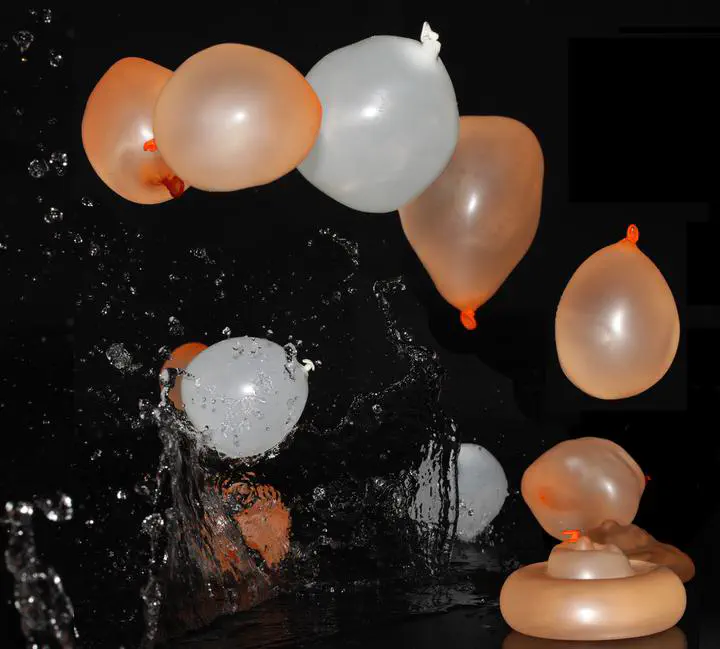
Abstract
From water balloons to cells and various organs, thin elastic shells enclosing liquid cores or capsules are ubiquitous. Although such capsules are rampant in nature and in engineering, the physics of their deformation upon rapid impact is virtually unexplored. Here we perform experiments and develop formal models to rationalize the deformation and possible bursting of elastic capsules impacting rigid walls. We discover an analogy to the impact of liquid drops, where the shell surface modulus plays the role of the drop surface tension. On the basis of this analogy, we propose an energy balance that quantitatively predicts the maximal deformation of the capsule in the inviscid limit, and for liquids with viscosities up to 1,000 cP (Reynolds numbers ≳10). Unlike drops, however, capsules can be pre-stretched and burst. Experiments show a substantial influence of the pre-stretch on the critical burst velocity, a feature also captured by our model. While we focus on macroscopic objects, our model could potentially be extended to account for the deformations of microcapsules in microfluidic channels. In addition, this work could have practical implications from the optimized detonation of fire-extinguishing balls to fight domestic fires and wildfires to the prevention of organ bursting in car crashes.